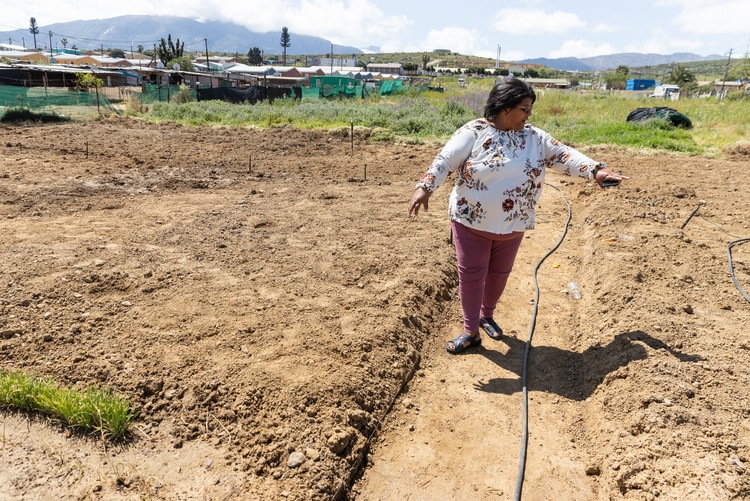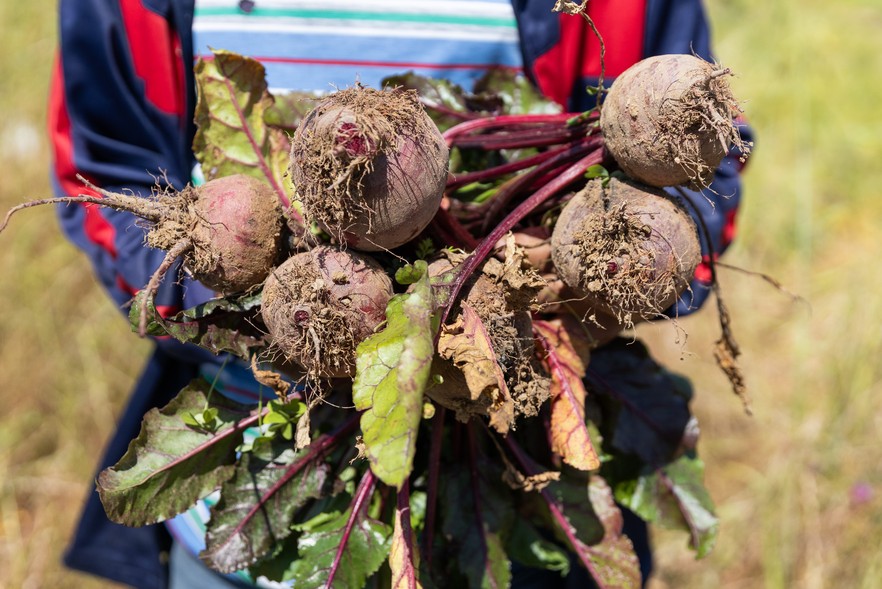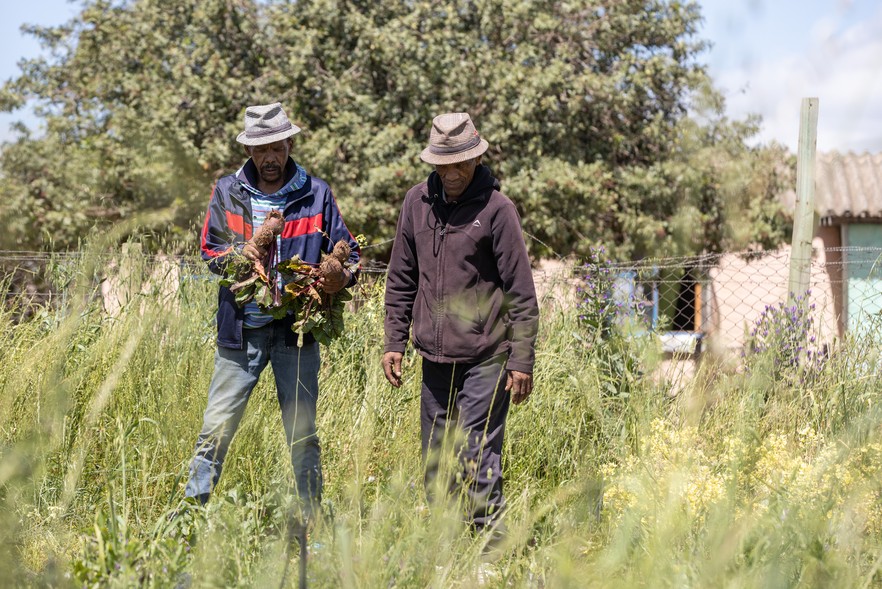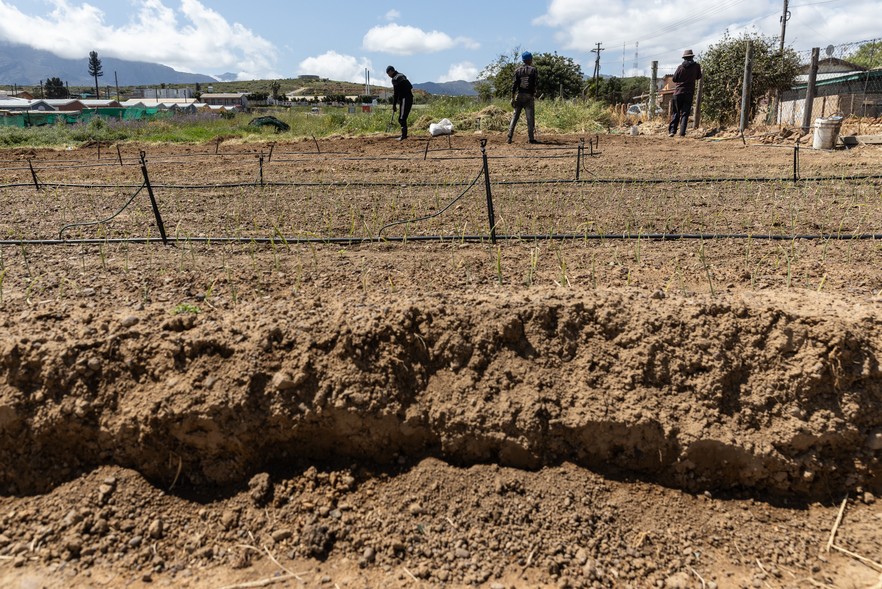Citrusdal farmers devastated by two years of floods
But they are determined to start over and revive their vegetable gardens yet again
Janelle Simons is one of ten small-scale farmers who grows vegetables on a piece of municipal land in Oranjeville, Citrusdal. For the past two winters, they have not been able to grow and sell their crop because their gardens were flooded. Photos: Ashraf Hendricks
- For two years, small-scale farmers in Citrusdal have battled heavy rains that completely devastated their vegetable crops.
- GroundUp visited the small farmers again over a year later. The farmers have started work on their gardens again after months of not having access due to heavy rains.
- Citrusdal was cut off from the world in both 2023 and 2024 following heavy rains which washed away the main access road to the town.
What were once thriving vegetable gardens run by ten small-scale farmers in Oranjeville, Citrusdal in the Cederberg, is now partly overgrown with only a few dead crops.
For the last two winters, these farmers have not been able to grow crops due to devastating floods in the region. Usually by this time of the year, the farmers have grown large cabbages, cauliflower, onions, and potatoes. All of these vegetables washed away this winter as they did a year ago.
GroundUp first visited the farmers in July 2023. They were struggling to put food on the table after the heavy rains wrecked their crops. At the time the Western Cape Department of Agriculture estimated the total damage to agriculture and infrastructure across the province was R1-billion.
Over a year later, very little has changed for many of the farmers. They told GroundUp that this year was especially difficult because their vegetable gardens were flooded for months.
Janelle Simons is a member of the Surplus People Project (SPP) and grows her vegetables on a piece of municipal land in Oranjeville with about nine other farmers. None of the farmers could salvage most of their winter crop, she says.
A handful of beetroot that a farmer, Albertus Jonas, managed to salvage from his flooded garden.
When we arrived the vegetable gardens were overgrown. Some dead cabbages were still lying on the ground. Part of the land had been cleared where new onion seedlings were planted. “We couldn’t come in here at all. Once you go in, you sink into the ground,” said Simons.
Citrusdal was badly hit by heavy rain during 2023 and again this year, in both cases the main access road was damaged and the town was cut off. In both cases, residents in formal and informal housing were either displaced or evacuated.
Brothers Albertus and Lawrence Jonas stand in their overgrown vegetable garden after their crops flooded again this winter.
Another farmer, Lawrence Jonas, said that when the town was cut off again this year, food prices in shops shot up and became unaffordable to most people. He previously relied on his own crop for food, but has not been able to do this and often had to rely on getting food from others.
Despite almost losing hope, the farmers say they are determined to get back to work. They have started preparing the soil for planting for them to be able to harvest in December, said Jonas. “My heart is in farming,” said he said.
Albertus Jonas, who has been farming on the piece of land since the 1990s, told GroundUp that this was one of the worst floods he’s experienced, but not the only one, and that it’s part of a cycle.
“Perhaps next year will go a bit better … There is a time it comes and a time it goes,” said Jonas.
Citrusdal small farmers preparing the soil and planting seedlings after their gardens were flooded for months.
Support independent journalism
Donate using Payfast

Next: The public swimming pool in this Eastern Cape town has been empty for four years
Previous: Three of four Shosholoza Meyl train routes halted indefinitely
© 2024 GroundUp. This article is licensed under a Creative Commons Attribution-NoDerivatives 4.0 International License.
You may republish this article, so long as you credit the authors and GroundUp, and do not change the text. Please include a link back to the original article.
We put an invisible pixel in the article so that we can count traffic to republishers. All analytics tools are solely on our servers. We do not give our logs to any third party. Logs are deleted after two weeks. We do not use any IP address identifying information except to count regional traffic. We are solely interested in counting hits, not tracking users. If you republish, please do not delete the invisible pixel.




